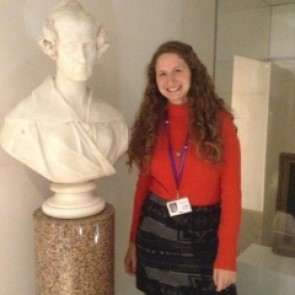You are here
- Home
- Brigitte Stenhouse awarded the International Commission on the History of Mathematics 2021 Montucla Prize
Brigitte Stenhouse awarded the International Commission on the History of Mathematics 2021 Montucla Prize
Brigitte Stenhouse is one of two recipients (along with François Lê) of the International Commission on the History of Mathematics 2021 Montucla Prize. The prize was awarded for Brigitte's article Mary Somerville’s early contributions to the circulation of differential calculus, published in Historia Mathematica in 2020.
The citation for the award reads as follows.

In her Historia Mathematica article, “Mary Somerville’s early contributions to the circulation of differential calculus” (51 (2020) 1–25), Brigitte Stenhouse deals with Mary Somerville’s early contributions to the circulation of differential calculus in the UK. Her article is a well-documented, convincing contribution to our knowledge of Mary Somerville's socialization in the male-dominated world of 19th-century mathematics. It illuminates the ways that a female actor could explore to make herself known and how class and education did shape Somerville's career. By 1831, with her publication of her translation of Laplace’s Mécanique Céleste, Mary Somerville (1780–1872) solidified her reputation throughout Western Europe as a highly proficient mathematician and an expert in “French analysis”. Based on rich archival material, Stenhouse shows among other things that Somerville’s autobiography, published posthumously in 1873, which heavily influenced the narrative of her early life, has to be read with caution. Stenhouse, who is working on a Ph.D. under the supervision of J. Barrow-Green, sheds light on her preliminary studies and examines Somerville’s earliest known mathematical work, namely her published (although mainly under pseudonym) and unpublished solutions to questions posed in the New Series of the Mathematical Repository, alongside her contemporary correspondence with mathematicians John and William Wallace. These submissions demonstrate Somerville’s active engagement in the circulation of the differential calculus twenty years earlier than previously appreciated.

